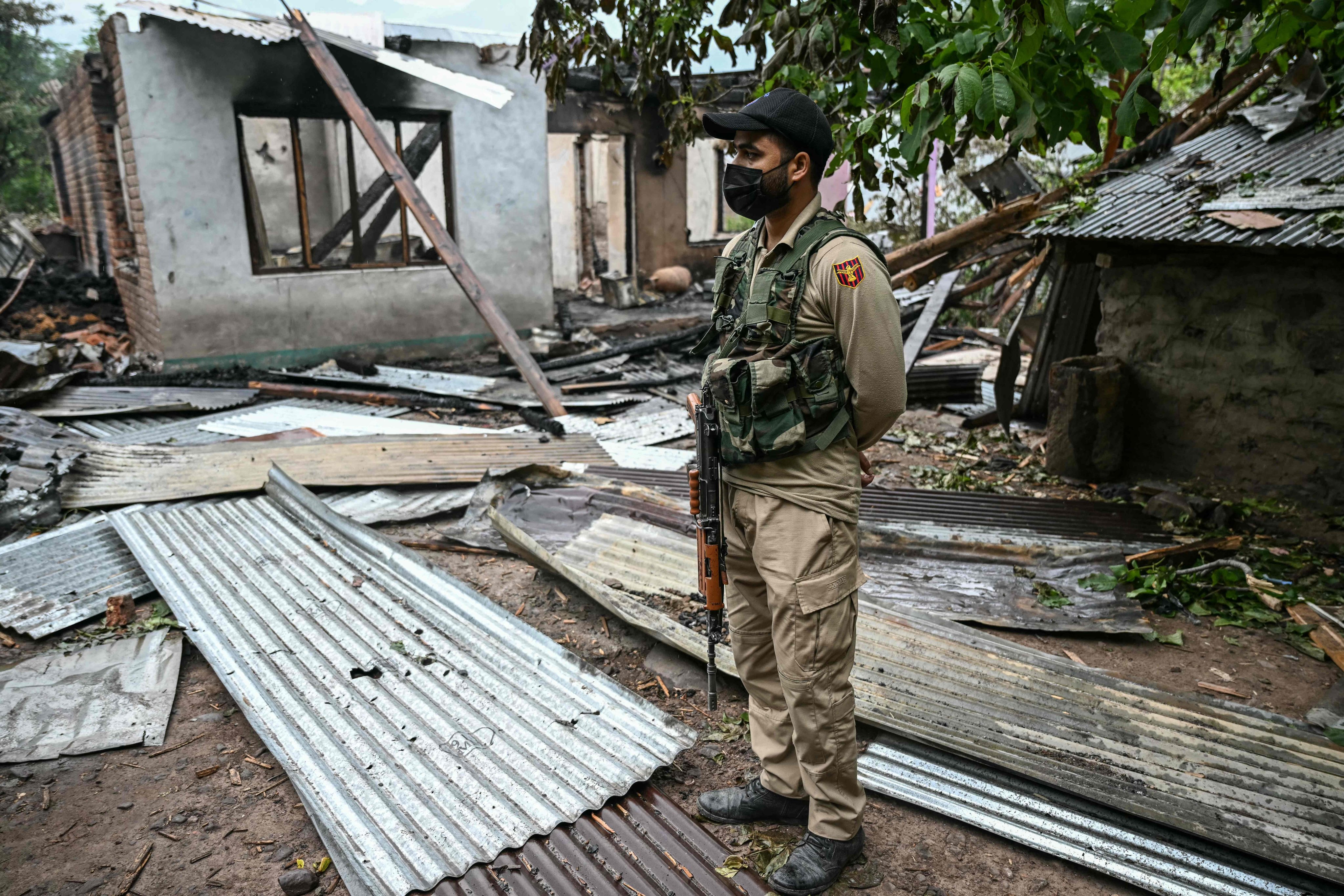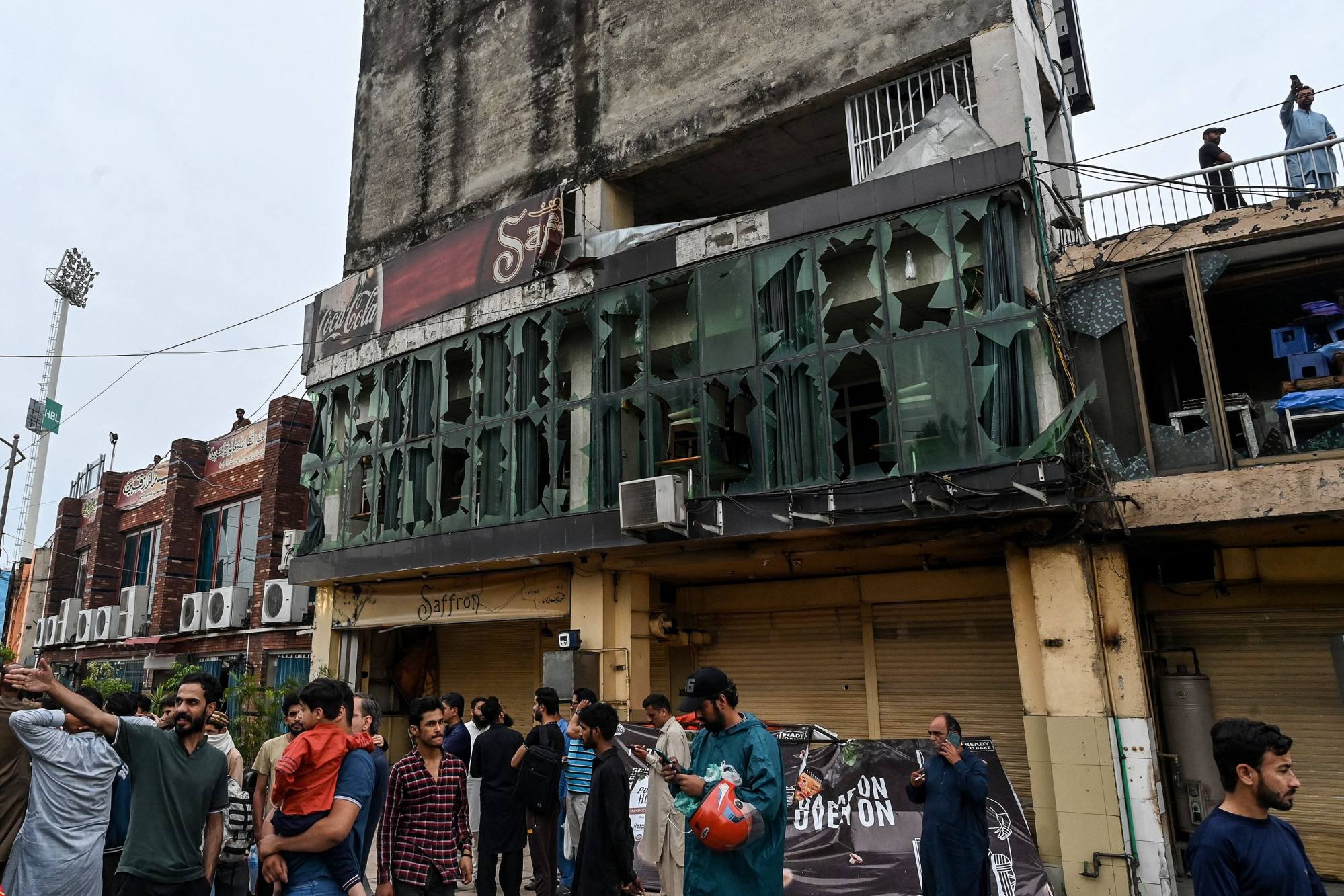Pakistan hits India’s entire western border, forcing flight suspensions at 24 airports
The Indian army said it repulsed Pakistan’s drone attacks along the frontier as fighting between the rivals escalated

Pakistan’s armed forces launched “multiple attacks” using drones and other munitions along India’s entire western border on Thursday night and early Friday, the Indian army said, as conflict between the nuclear-armed neighbours intensified.
The old enemies have been clashing since India struck multiple locations in Pakistan on Wednesday that it said were “terrorist camps” in retaliation for a deadly attack in its restive region of Kashmir last month, in which it said Islamabad was involved.
Pakistan denied the accusation but both countries have exchanged cross-border firing and shelling and sent drones and missiles into each other’s airspace since then, with nearly four dozen people dying in the violence.
The army also said Pakistani troops had resorted to “numerous cease fire violations” along the countries’ de facto border in Kashmir, a region that is divided between them but claimed in full by both.
“The drone attacks were effectively repulsed and befitting reply was given to the CFVs (ceasefire violations),” the army said, adding all “nefarious designs” would be responded to with “force”.
There was no immediate response from Pakistan to the Indian statement.
India also suspended civilian flights at 24 airports in the north following fighting with Pakistan.
Late on Thursday, the Indian government released a list of 24 airports that have been closed for civilian flights, including in the cities of Jodhpur, Ludhiana and Amritsar near the western border with Pakistan.
Some of India’s biggest airlines, including Air India, IndiGo and SpiceJet, have cancelled over 100 flights since Wednesday.
Local media reported the suspension of civilian flights may be lifted on Saturday morning.
Indian airlines have also issued advisories to passengers flying out from other airports, asking them to arrive at least three hours before departure, citing a government notification on enhanced security measures.
Islamabad had earlier denied attacking Pathankot city in India’s Punjab state, Srinagar in the Kashmir valley, and Rajasthan state’s Jaisalmer, saying the accusations were “unfounded” and “politically motivated”.
A “major infiltration bid” was “foiled” in Kashmir’s Samba region on Thursday night, India’s Border Security Force said, and heavy artillery shelling persisted in the Uri area on Friday, according to a security official who did not want to be named.
“Several houses caught fire and were damaged in the shelling in the Uri sector … one woman was killed and another injured in overnight shelling,” the official said.
Sirens blared for more than two hours on Friday in Amritsar, which houses the Golden Temple revered by Sikhs, and residents were asked to remain indoors.
Ansab, a student at the Sher-e-Kashmir University of Agriculture, Science and Technology in Jammu city, which was among the places where blasts were heard overnight, said the explosions were “more violent and louder” around 4am.
“For two to three minutes it became very loud, windows started shaking as if they will break,” she said, adding the air was “smoggy” later – a mixture of smoke and fog.

Islamabad said on Thursday its forces had neutralised 29 Israeli-made Harop drones that attacked Pakistan.
The cities targeted included Rawalpindi, headquarters of the military and also the cricket stadium hosting the ongoing Pakistan Super League.
The remaining matches of the league have been moved to the United Arab Emirates.
Indian cricket bosses will decide on Friday what happens to the rest of their Indian Premier League season, a senior official said, in the face of the deadly confrontations.
World powers from the US to China have urged the two countries to calm tensions, and US Vice-President J.D. Vance on Thursday reiterated the call for de-escalation.
“We want this thing to de-escalate as quickly as possible. We can’t control these countries, though,” he said in an interview on Fox News show The Story with Martha MacCallum.
The relationship between Hindu-majority India and Islamic Pakistan has been fraught with tension since they became separate countries after attaining independence from colonial British rule in 1947.
Kashmir, a Muslim-majority region, has been at the heart of the hostility and they have fought two of their three wars over the region.
Additional reporting by Agence France-Presse